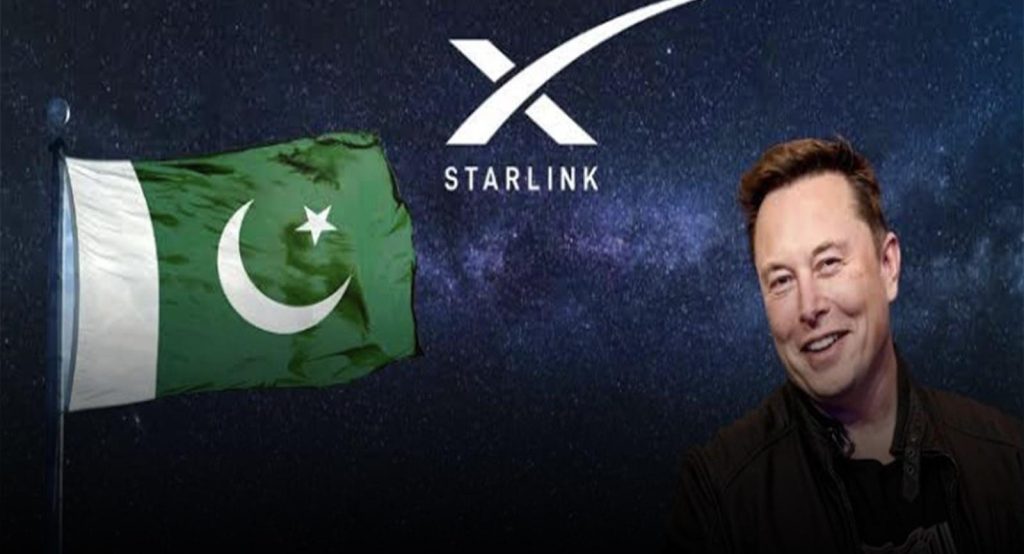Musk-owned Starlink gets registered with Pakistan’s SECP
Space board authority looking into various technical aspects: minister.
Starlink communicated about the progress, she says.
Musk confirms awaiting govt’s approval to launch Starlink.
ISLAMABAD: Minister of State for Information Technology and Telecommunication Shaza Fatima Khawaja on Monday confirmed that the satellite-based internet-providing company Starlink, owned by US billionaire Elon Musk, was registered with the Security Exchange Commission of Pakistan (SECP).
“[Following the approval] the space board authority is looking into various technical aspects and we have communicated [about this] to Starlink,” she said while speaking to Geo.tv.
Furthermore, the IT minister said, a regulatory regime was being worked out so that all low earth orbit (LEO) satellite companies including Starlink “is open to all international companies”.
The development came two days after Musk confirmed that he was awaiting Islamabad’s approval to launch Starlink in Pakistan.
He made the remarks while responding to messages on social media platform X by a Pakistani social media activist.
Meanwhile, officials — while speaking to Geo.tv today — said that international consultants were on board to work out a “regulatory framework for non jurisdictional and non stationery low earth orbits”.
“These satellites may interfere in the local frequency so a comprehensive policy is being prepared covering all aspects,” they said.
“We are preparing an overall regulatory regime for such issues. LEO satellite no other country in the region has it yet,” the officials added.
The country has been grappling with slow internet since last year alongside ban on social media platform X (formerly Twitter), with the government consistently blaming submarine cable faults, while reports hint at possible experimentation with a “firewall” by authorities.
According to a list issued by Ookla Speedtest Global Index, Pakistan was ranked 100 out of 111 countries in mobile internet speeds with a download speed of 20.61Mbps and upload speed of 8.53Mbps.
Meanwhile, the index ranked the country at 141 out of 158 countries in broadband speeds with a download speed of 15.60Mbps and upload speed of 15.53Mbps.
The matter also came into debate in both houses of parliament multiple times but to no avail. The disruption also resulted in financial losses to the country’s IT industry as well.
New undersea cable for Pakistan
However, in a positive development last month, it emerged that a major undersea internet cable is being laid, which is expected to considerably enhance internet speed and reliability.
The project falls under the 2Africa Submarine Cable System, facilitated by the PTA through the Transworld Associate (TWA) as the landing party for the cable in Pakistan.
The 2Africa cable, stretching 45,000 kilometres, connects 46 locations across Africa, Europe, and the Middle East, with the use of state-of-the-art SDM1 technology with a capacity of 180Tbps.
Supported by a global consortium that includes Meta and Vodafone, the cable is expected to go live in Pakistan by Q4 2025, PTA had announced in a press release.
Installation started on December 1, 2024, as the first phase of the work, Pre-Lay Shore End (PLSE) installation included the cable landing at Hawksbay, Karachi. The second phase deep-sea laying of the cable is planned to start on April 1, 2025.
Once operational the cable will provide Pakistan with 24 terabytes of bandwidth. A French company is involved in installing the 45,000-kilometre cable, Geo News reported.
The enhanced bandwidth will also improve the performance of platforms such as Facebook, WhatsApp, and Instagram.
Currently, Pakistan relies on approximately 8 terabytes of bandwidth provided by seven existing cables. The new system, connecting the African region to Pakistan, aims to improve connectivity and address long-standing complaints of slow internet speeds.

